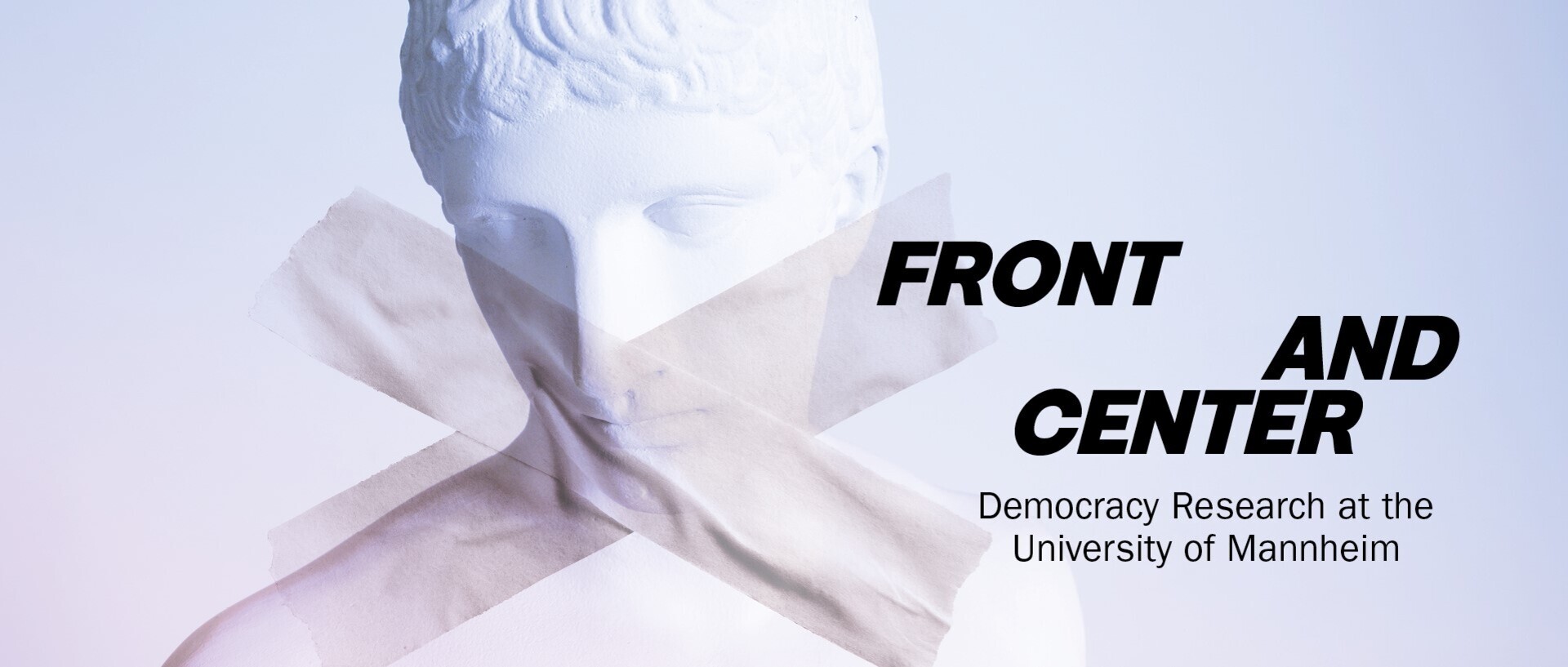What Does My Party Stand For?
Over a span of 14 years, Mannheim-based political scientist Marc Debus, together with Zeynep Somer-Topcu (University of Texas at Austin) and Margit Tavits (Washington University in St. Louis), studied election campaigns in 12 democracies. In each country, the team analyzed four traditional media outlets during the four weeks leading up to national elections. The result: a massive dataset now publicly available via the Mannheim Centre for European Social Research (MZES).

FORUM: Professor Debus, your project is called “Where is my party?” What were you hoping to find out?
Prof. Dr. Marc Debus: Our goal was to understand what effect campaign messaging—specifically, the messages sent by parties through traditional media in the four weeks before an election—has on party competition and voter perception. Because if there’s a discrepancy between a party’s policy positions and how those positions are perceived by voters, that can have serious consequences for the quality of representation in modern democracies.
FORUM: Can you give an example of such a discrepancy?
Debus: Take the Bündnis Sahra Wagenknecht (BSW). It’s a new party, and voters don’t yet have a fixed opinion about it or clearly know what it stands for. In cases like this, people often rely heavily on what party representatives say in the media. If those statements are vague—on climate policy, for example—a discrepancy is extremely likely to emerge. If a voter really cares about climate issues and ends up casting their ballot for BSW based on their ambiguous messaging in the media, they might choose a party that doesn’t actually represent their interests.
FORUM: Why is that kind of misinformed vote a problem for democracy?
Debus: Research shows that parties do, by and large, implement the policies they campaign on. Left-leaning parties, for instance, tend to raise taxes and expand welfare programs. Center-right or conservative parties, by contrast, usually lower taxes and reduce the scope of the welfare state.
So if voters choose a party that aligns with their views based on campaign information, they can reasonably expect that the party will govern accordingly—provided it enters parliament and forms a government. In that case, political outcomes reflect voter preferences. If there’s a discrepancy, however, the opposite will happen: if voters misjudge where a party stands and make a choice that doesn’t match their own policy positions, they’re likely to be disappointed by the results. That can lead to a drop in satisfaction with politics more generally—and in some cases, trigger a deeper crisis of trust in democracy.

FORUM: Your study focused on the final stretch before elections—the last four weeks.
Debus: Exactly. That’s because this final phase of the campaign has become increasingly important over the past few decades. More and more voters make up their minds late in the game. Back in the 1960s, fewer than 10 percent decided in the last month. Today, it’s more than half. That makes for a large group of flexible, undecided voters—people who need to be persuaded anew every time. It’s a major challenge for political parties. That’s why campaign messaging, and election campaigns generally, now play a much bigger role than they used to.
FORUM: So what do you find? Do voters in Germany know where the parties stand?
Debus: They do. Our findings show that overall, German voters are quite well-informed about party positions. There are exceptions, of course. In the 2009 and 2013 elections, Die Linke (The Left) sent somewhat mixed signals. But most parties frequently scored at the very top of our scale—meaning their messaging was completely consistent. That’s good news for democracy in Germany. That said, there’s still more to study. For instance: how exactly does satisfaction with democracy depend on electoral outcomes and the outcomes of the political process—which, after all, always involves compromise and external pressures, like international crises?
Interview: Jule Leger / August 2025

In 2024, the project received the American Political Science Association’s prestigious Lijphart/
